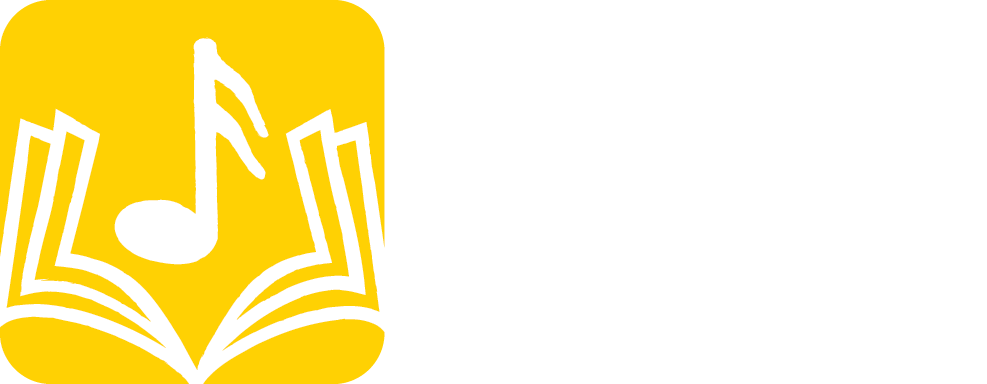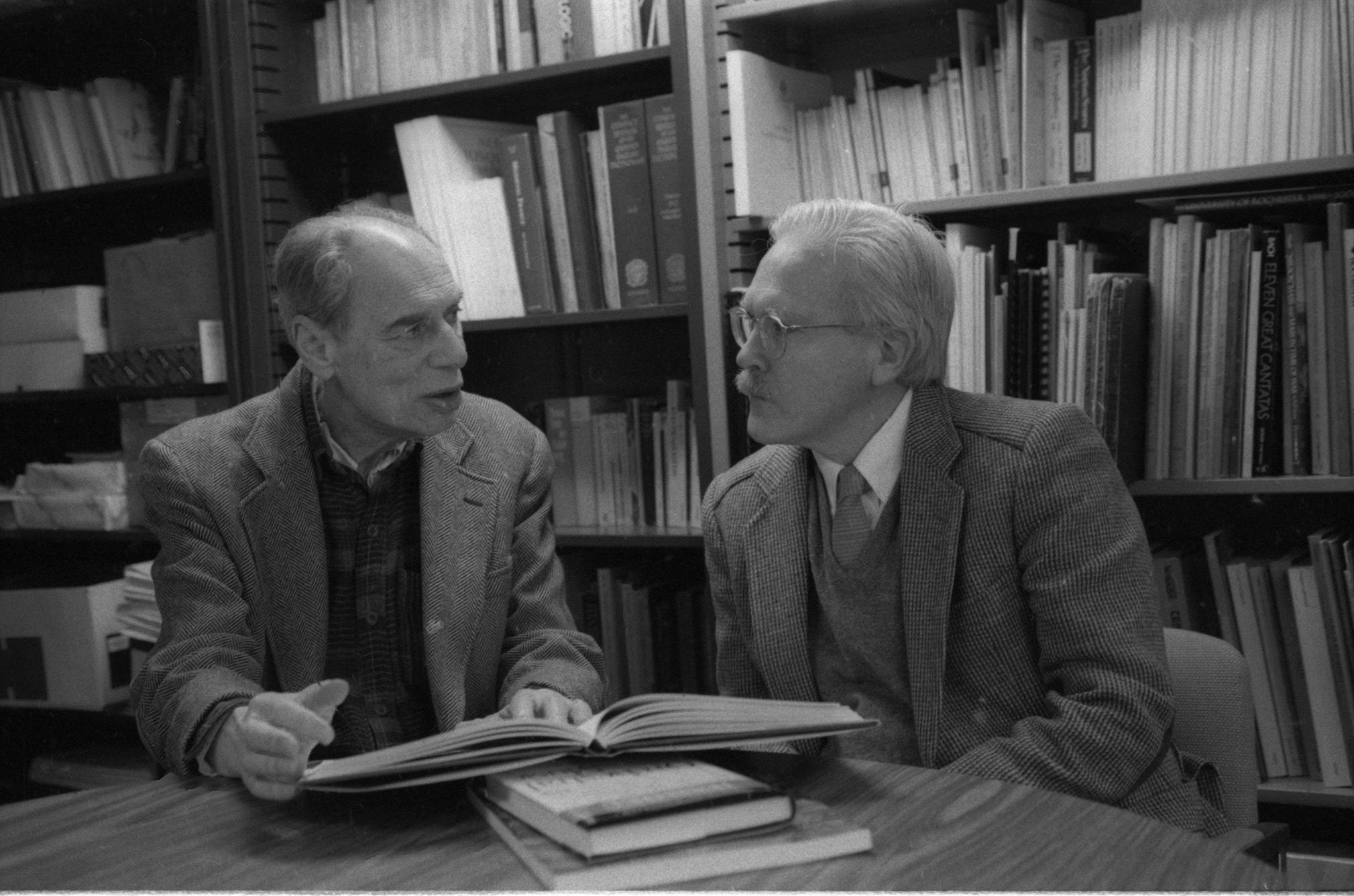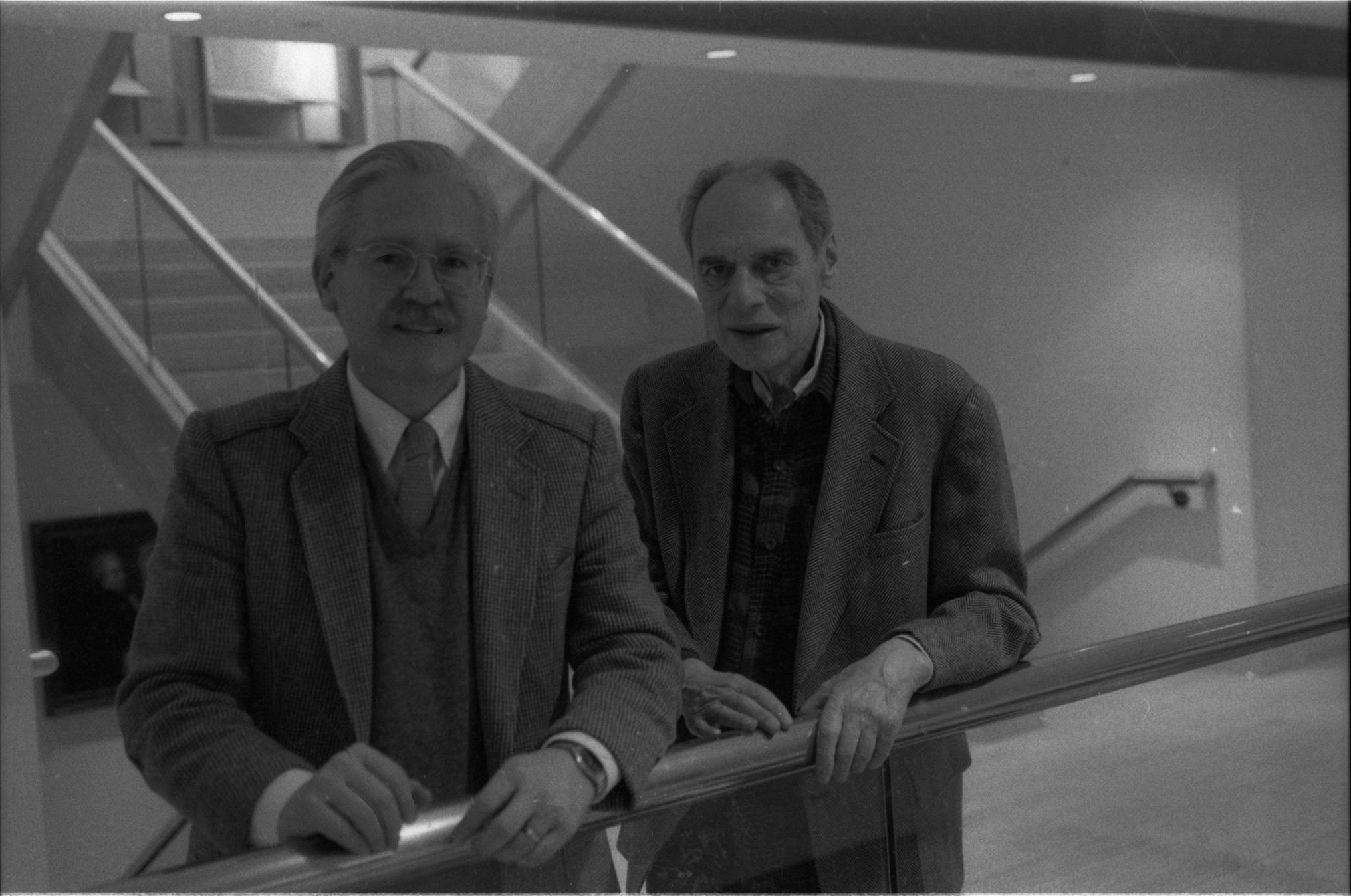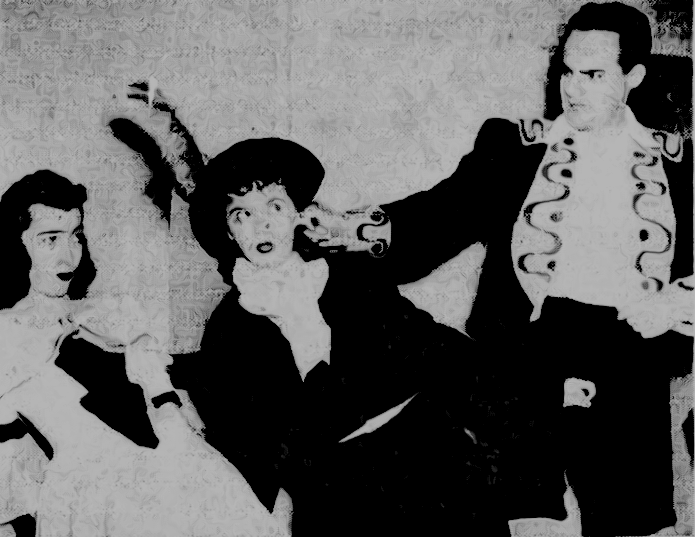Published on December 12, 2022
Dr. Mann and Dr. Weinert, photographed on December 16th, 1998 by Louis Ouzer. Louis Ouzer Archive. Master negative nos. R4341-7 and R4341-25.
Last week’s TW@E acknowledged the role of Eastman’s Dr. Alfred Mann, Professor of Musicology, as Musical Advisor to two Eastman Chorale performances of Handel’s Messiah (1981, 1983) and a commercial recording project of same (released in 1984). Dr. Mann served on the Eastman School faculty 1980-87 following his retirement from Rutgers University, where he had served 1947-80. Dr. Mann’s career interests were numerous, but as a musicologist. scholar, and director, he had devoted much time and attention to choral music, believing that the successful choral conductor must also be an historian. In 1953 he succeeded Arthur Mendel (1905-1979) as conductor of the Cantata Singers, a New York-based choral ensemble dedicated to authentic performance practice in the presentation of Baroque choral music (and one of the first such choral ensembles in the USA). Mann served in that capacity until 1959, when he resigned to take up administrative duties alongside his teaching responsibilities at Rutgers, including the role of director of graduate studies in music. In 1958 Dr. Mann received a Guggenheim Fellowship in the service of preparing a new critical edition of Handel’s Messiah based on autograph manuscripts and original performing materials. The edition was published by Rutgers University Pess through J. Fischer & Bro. (1959-65) and was later reprinted by Dover (1989). It was this same edition that informed the Eastman Chorale performances and recording.
Dr. Mann garnered a further professional distinction in choral music when in 1961 he was named Editor of the American Choral Review, bulletin of the American Choral Foundation (itself established in 1954). The journal had begun publication in June, 1958 under the title Bulletin of The American Concert Choir and Choral Foundation, Inc.; with the January, 1959 issue (volume 1, no. 3), the journal’s title was altered to Bulletin of The American Choral Foundation, reflecting the parent organization’s change of name. With the October, 1961 issue (volume IV, no. 1), the journal appeared for the first time under the title American Choral Review, and with that issue, Dr. Mann assumed editorial direction of the journal. From its outset the journal was primarily concerned with authentic performance practices in historical context in choral music; as such, it became essential reading for conductors, singers, composers, and musicologists. Certain special issues constituted monograph publications in their own right, including one dedicated to the choral works of George Walker (1922-2018), ’56 (DMA), and also the journal’s special issues on Bach studies (volume XXVII, no. 1) and Handel studies (volume XXVII, nos. 2 and 3). Under Mann’s guidance the journal was consistently distinguished for its literary quality, and one of Mann’s special contributions was his personal attention to translating texts submitted in German, French, or Italian by European authors.
In late 1998, well into his fourth decade of service as Editor, Alfred Mann communicated his decision to relinquish his position. He found his most capable and qualified successor in his Eastman School of Music colleague Dr. William Weinert, who had been appointed Eastman’s Director of Choral Activities in 1994. Twenty-four years ago this week, on December 16th, 1998, photographer Louis Ouzer photographed the two men at the Eastman School of Music. Special messages from both men to the journal’s readership were published in the winter/spring 1999 issue (volume XLI, no. 1). In his message of farewell, Mann acknowledged and affirmed the journal’s “important legacy,” namely, “We are the only one among American choral periodicals to have the privilege of dealing with our material from the perspective of choral history only. In spite of our usual attention to current events, we are without any obligation to ephemeral critique … .” Dr. Weinert, in his own message to the readership, saluted Alfred Mann’s having “established the highest of editorial standards” and further, his having “shaped a fledgling publication from the 1950s into the Cadillac of choral periodicals in the 1970s and 1980s …” and assuring readers that Mann would assume a new status as “editor emeritus” thereby ensuring a continuation of participation as the journal now proceded under new editorial direction. Alfred Mann died in 2006, beloved by many colleagues, friends, students and former students around the world. The American Choral Review eventually ceased publication with its summer 2020 issue (volume LVIII, no. 2).
The transition at American Choral Review—the passing of the baton, as it were—was reported to the Eastman School community in the winter 1999 issue of Eastman Notes.







